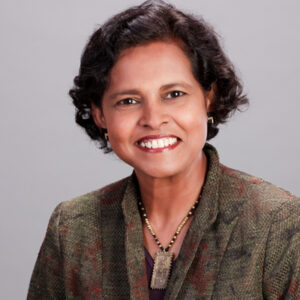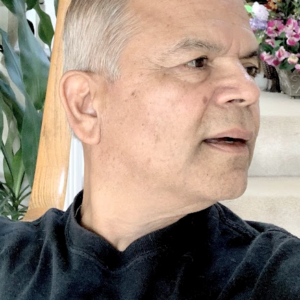
Rani Parker
President
Dr. Rani Parker specializes in corporate-community investment. She founded BCS in 2004 to practice alternative forms of development that emphasize direct engagement. Her methodology, which supports locally identified priorities, local leadership, and multi-directional accountability, has been proven in over ten years of practice in more than a dozen countries. Dr. Parker’s experience in international development and in-depth research on corporate-community relationships, spans the public, private business, and civil society sectors. She has helped organizations assess the social impacts of their operations, facilitate dialogue with stakeholders through direct engagement, and design and implement policies and programs that enhance business-community relationships. Her central philosophy is that direct relationships between globally-oriented international businesses and local communities both reduce corporate business risk and enhance local community development. Dr. Parker’s international development career evolved from grassroots work in India to economic development programs in West Africa to gender analysis in the Middle East, and eventually to participatory evaluation and partnership building across many regions of the world. As Director of Woman/Child Impact programs and Chief Advisor at Save the Children USA, she formed and led multi-national teams of development practitioners who have been recognized with international development awards for their work in capacity building and social and gender analysis of programs in health, education and economic opportunity. She has also consulted with organizations such as Care USA, Business for Social Responsibility, The Centre for Development and Population Activities, The Salvation Army World Service Office, the US Bureau of Labor Statistics, UNICEF, and the UNDP (United Nations Development Program). Her corporate clients have included global companies such as Chevron, Shell, and Rio Tinto. Her early work on gender analysis, Another Point of View, has been translated into five languages and is widely used for community-based gender analysis in developing countries. Her most recent work, a 2018 study of the transparency impacts of multi-stakeholder engagement on communities in Western Uganda, is published in the Proceedings of the National Academy of Sciences (2019).

Jay Banjade
Regional Director
Jay Banjade is a seasoned development professional with over 30 years of experience in international development in the areas of program design, monitoring and evaluation, and capacity development. Jay has worked with BCS on oil and gas projects supporting headquarters initiatives of corporate clients and currently represents BCS in South Asia, based in Kathmandu, Nepal. He has deep experience with community organizations and managing their relationships with host country governments, international NGOs, international development organizations, corporations, and universities. Jay has worked with numerous global international organizations, and has managed multi-year, multi-component, multi-million-dollar projects in the US, and overseas with staff sizes ranging up to 4000 individuals representing different cultures and ethnicities. His international experience includes work in over 50 countries including locations in Asia, Africa, Europe, Australia, and the Americas. He serves on the boards of several NGOs and community organizations from different countries. Jay has an MBA from the University of Bath, U.K. and a Masters in Management, TU/Nepal.

Alex Rosen
Senior Consultant
Alex is a veteran of social development projects and has worked as a social impact assessment consultant for BCS. He now represents BCS in Africa and works on a clean water delivery project in Goma, DRC, developing policies and procedures to ensure donor compliance and efficient day-to-day operations. Alex has also conducted missions in the Middle East with the World Bank, where he presented a series of workshops to the Saudi Arabian government on Transfer Pricing and Taxation in International Trade. Prior to that, Alex worked for the United States Department of Commerce and the International Trade Administration on multiple bilateral International Trade Issues between the US and Russia, India, and China. Additionally, he worked as a Financial Consultant, having started his own Financial Advising business in South Florida, where he worked for several years prior to getting his master’s degree in International Relations and Economics from Johns Hopkins School of Advanced International Studies. He currently resides in Kigali, Rwanda with his wife and two children.

Raquel Navarro
Contract Manager
Raquel has worked over 14 years in accounting, business management and training. She manages BCS project budgets and contracts and provides training and capacity building in these areas as needed. Raquel has worked with several companies to help them transition to more up-to-date and effective systems drawing on the newest technologies. She is fluent in Spanish and Portuguese. Raquel is committed to volunteer work, and in this capacity, she enjoys tutoring and teaching reading skills to children.

Afua Frimpong
Social Media and Communications Intern
Afua Frimpong is BCS’s Social Media and Communications Intern. She is a recent graduate of the University of Maryland with a degree in Digital Media and Communications. At age 13 she moved from Ghana to the United States with her family. She is interested in working in cross-cultural teams to generate shared outcomes. In her free time, she enjoys writing poetry, movie scripts, and studying new languages.
